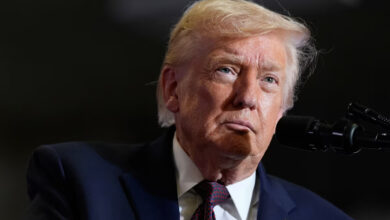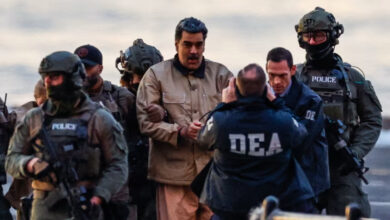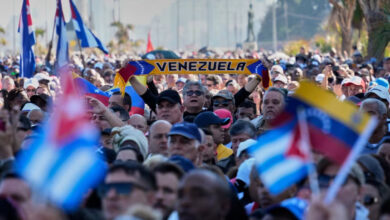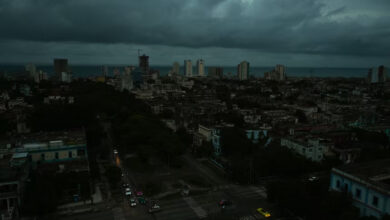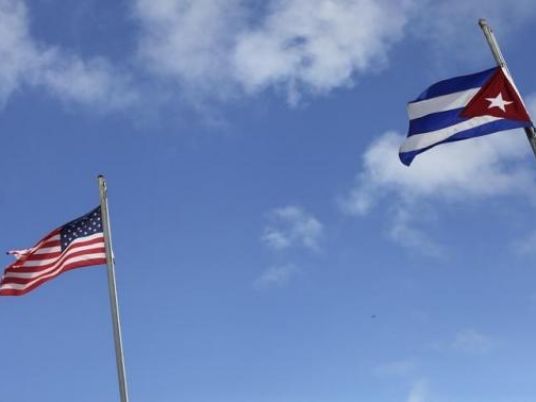
President Barack Obama announced the United States would restore diplomatic relations it severed with Cuba more than 50 years ago, drawing resistance from lawmakers opposed to reconciling with the communist-run island.
After 18 months of secret talks facilitated by the Vatican and Canada, Obama and Cuban President Raul Castro agreed by phone on Tuesday on a prisoner exchange and the opening of embassies in each other's countries.
In a television speech on Wednesday, Obama announced the end of what he called a rigid and outdated policy of isolating Cuba that had been ineffective in achieving change on the island.
Obama said the moves were made possible by Havana's release of American Alan Gross, 65, who had been imprisoned in Cuba for five years.
Cuba is also releasing an intelligence agent who spied for the United States and was held for nearly 20 years, and the United States in return freed three Cuban intelligence agents held in the United States.
At the same time Castro hailed the exchange of prisoners and praised Obama. Known for his low-key style, Castro avoided triumphal statements in his televised address but said the release of the three Cubans was a cause of "enormous joy for their families and all of our people."
Obama said Pope Francis, the first Latin American pontiff, had played an active role in pressing for Gross' release. A sizable part of Cuba's population is Roman Catholic. The Vatican worked closely with both sides and hosted in-person meetings of U.S. officials, senior Obama administration officials said.
The policy shift will mean an opening to some commerce and transportation without ending a longstanding trade embargo. That is codified in legislation and needs congressional approval that Obama said he would seek, but he will likely face a struggle.
While travel restrictions that make it hard for most Americans to visit will be eased, the door will not yet be open for broad U.S. tourism on the Caribbean island.
Cuba and the United States have been ideological foes since soon after the 1959 revolution that brought Raul Castro's older brother, Fidel Castro, to power. Washington broke diplomatic relations with Havana in 1961 and the United States has maintained its trade embargo on the island, 90 miles (140 km) south of Florida, for more than 50 years.
Coritics challenge Obama
Critics of Obama's announcement said Cuba should not be rewarded when it has not changed.
Former Florida Governor – and potential 2016 Republican presidential candidate – Jeb Bush was cited by USA Today as saying, "I don't think we should be negotiating with a repressive regime to make changes in our relationship."
Although a growing number of U.S. lawmakers favour more normal ties, those lawmakers are still mostly Democrats, and after big midterm election gains in November, Republicans will control both houses of Congress in the new year.
Senator Marco Rubio, a Cuban American Republican, said he would use his role as incoming chairman of a key Senate Foreign Relations Committee to try to block the plan and was committed to doing all he could to "unravel" it.
Whatever the criticism at home, Obama's move was made with the political liberty of a president who, midway through his second term, no longer faces an electorate.
His move could bolster Democratic hopes of retaining the support of Latino voters as the party looks ahead to the presidential election in 2016. Republican candidates seeking to carve out some of the Latino vote may have difficulty arguing against the Cuba move.
Americans are largely open to establishing diplomatic relations with the Cuban government, according to a Reuters/Ipsos poll of more than 31,000 adults conducted between July and October.
Around one-fifth said they opposed such a move, while 43 percent said the United States should restore relations with Cuba and around 37 percent said they were unsure.
Cuban Americans split
News of the changes rippled fast through the 1.5 million-strong Cuban American community in the United States, hailed by some who are keen to see closer ties with the island and condemned by others.
Older Cubans who left the island soon after the revolution have remained opposed to ties with either Castro brother in power. Younger Cubans, who left more recently or were born in the United States, have shown more interest in warmer relations.
"It's amazing," said Hugo Cancio, who arrived in Miami in the 1980 Mariel boatlift and runs a magazine with offices in Miami and Havana. "This is a new beginning, a dream come true for the 11.2 million Cubans in Cuba, and I think it will provoke a change of mentality here too in this community."
Washington's policy towards Cuba survived the demise of Soviet communism and the end of the Cold War as the United States pushes for democratic reform in Cuba. Flashpoints in U.S.-Cuba hostilities included the Cuban missile crisis of October 1962 that brought the world to the brink of nuclear war.
Raul Castro, who took over from Fidel Castro when his brother retired in 2008, has carried out some economic reforms but maintained a one-party political system.
In his remarks, Obama said Cuba still needed to make changes, including economic reforms and improving human rights.
Gross case
Obama said the Gross case had stalled his ambitions to try to reset relations with Havana, calling it a "major obstacle."
Cuba arrested Gross on Dec. 3, 2009, and sentenced him to 15 years in prison for importing banned technology and trying to establish clandestine Internet service for Cuban Jews. Gross had been working as a subcontractor for the U.S. Agency for International Development (USAID).
Gross's lawyer and family have described him as mentally vanquished, gaunt, hobbling and missing five teeth. Speaking to reporters after arriving in the United States, Gross thanked Obama for all he had done to secure his release and said he did not blame the Cuban people for his ordeal.
His case raised alarm about USAID's practice of hiring private citizens to carry out secretive assignments in hostile places. Cuba considers USAID another instrument of continual U.S. harassment dating back to 1959.
The three Cuban intelligence agents, jailed since 1998, are Gerardo Hernandez, 49, Antonio Guerrero, 56, and Ramon Labañino, 51. Two others had been released before on completing their sentences – Rene Gonzalez, 58, and Fernando Gonzalez, 51. The three arrived in Cuba on Wednesday, Castro said.
Despite their decades of animosity, the two countries have long been engaged on a host of issues such as immigration, drug interdiction and oil-spill mitigation.

